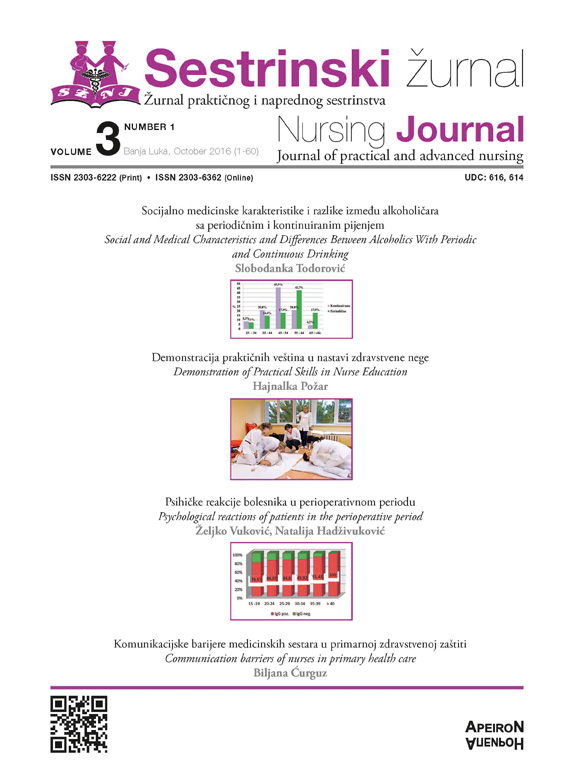Psihičke reakcije bolesnika u perioperativnom periodu / Psychological reactions of patients in the perioperative period
DOI:
https://doi.org/10.7251/SEZ0116042VAbstract
Surgical intervention usually leads to fear. The operation has always been emphasized emotional entry into the sphere of the unknown and there is no man with normal psychological defenses that do not feel any discomfort when visiting any operation.
The aim of this study is to examine the existence of psychological reactions of patients who were admitted to the surgical treatment, the possibility of exploring measures to overcome possible preoperative and postoperative fear, development of a plan to introduce changes and strategies to overcome the preoperative and postoperative fear and monitoring its implementation.
The research was conducted in the surgical unit for anesthesia and resuscitation at University Hospital in Foča during the period from 01.05.2013. until 31.05.2013. year. The study used a descriptive short questionnaire with information on the subject and self-assessment questionnaire for depression.
The majority of patients a few days before the operation had diminished interest in the events around them, a feeling of emptiness, indisposition, sleep problems, fatigue. The majority of patients had decreased appetite, weakness of concentration, slow, suicidal ideas. From all examined patients 15% of them showed no physical symptoms, while 85% were showed greater number of physical symptoms in the field of all organ systems. Twenty percent of all examined patients has no signs of depression, a mild form of depression was found in 55% of patients, while the moderately mild form of depression was found in 25% of patients.
A well-designed and conducted psychological preoperative preparation is not only an important factor for positive operational outcomes and successful post-operative recovery of patients, but also more durable pledge its rational relationship to health and disease.

